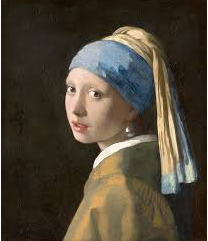Holiday Traditions
Photo by Nikola Johnny Mirkovic
A traditional holiday menorah for Hanukkah sitting in a window sill.
While Christmas is one of the more widely celebrated and known holidays during December, there are many other holidays and traditions that are often forgotten about during the hustle and bustle of Christmas commercialization.
Hanukkah
Hanukkah or Chanukah is the eight day Jewish holiday that celebrates the rededication of the Second temple during their revolution against their Greek-Syrian oppressors.
The legend of Hanukkah says that while the Jews were taking part in the rededication of the temple, they witnessed a miracle. They only had enough oil for the Menorah to burn for one night, but the candle flames kept burning for 8 nights.
The Hanukkah celebration for 2020 started on Dec. 10 at sundown and goes until Dec.18. The celebration starts with the nine-branch Menorah or “Hanukkah,” which is displayed in their house window. The ninth candle is called the “shamash” or the helper. It is used to light the other candles each night. Often, Jews will recite blessings during this ritual.
Some of the traditional food that is served during this celebration are latkes (potatoes fried in oil) and sufganiyot (jelly filled donuts). Other traditions are also to play a game with a “dreidel” and exchange gifts.
Kwanzaa
Kwanzaa was created by Dr. Maulana Karenga in 1966 because he wanted to find a way to bring African Americans together for a celebration. He took traditions and concepts of different harvest celebrations and combined them, creating Kwanzaa.
Similar to Hanukkah, for one week a candle is lit in the “kinara” or candle holder and one of the seven principles are discussed. It starts on Dec. 26 and goes to Jan. 1.
African Americans and parts of Africa celebrate Kwanzaa. Each family celebrates differently, but traditions like storytelling, song and dance, African drums, and a large meal, called a “karamu” with traditional foods is served.
The seven principles or “nguzo saba” in Swahili are a set of principles created by Dr. Karenga. They are: unity, self-determination, collective work and responsibility, cooperative economics, purpose, creativity, and faith.
Gifts are also typically given on the seventh day of celebration, to promote and encourage growth.
Las Posadas
The word “posadas” means inn or lodging and is a celebration for the Christmas story. It was created when early Spanish colonizers wanted teach in Mexico about Christmas day. Many parties held around Christmastime are now often called “posadas.” Many parts of Mexico celebrate it from Dec. 16-24.
Many traditions include pinatas, aguinaldo or bolo (candy bags for guests), tamales, and other traditional food. Singing and dancing is also very popular.
Diwali
Diwali is celebrated in November but is not forgotten as one of the many holidays celebrated. It is celebrated by Hindus, Sikhs, and Buddhists and is also known as “the festival of lights.”
This year, Diwali was celebrated on Nov. 14. The Hindu celebration commemorates the light overcoming darkness, and to mark the return of Ram, the lord of virtue. Sikhs use Diwali to mark the anniversary of Guru Hargobind’s release from prison. Buddhists celebrate Emperor Ashoka’s conversion to a path of peace.
Traditions include clay diyas (candles) that are lit, and even fireworks go off in more modern days. Houses are decorated with colorful rangoli art, which is patterns created with colored rice and flour. New clothes are worn, friends and family are visited, and gifts are exchanged.
No matter how you celebrate around the holiday season, it’s always interesting and fun to see the other traditions happening around us.







